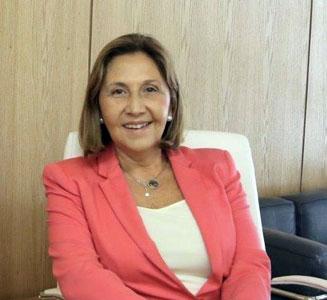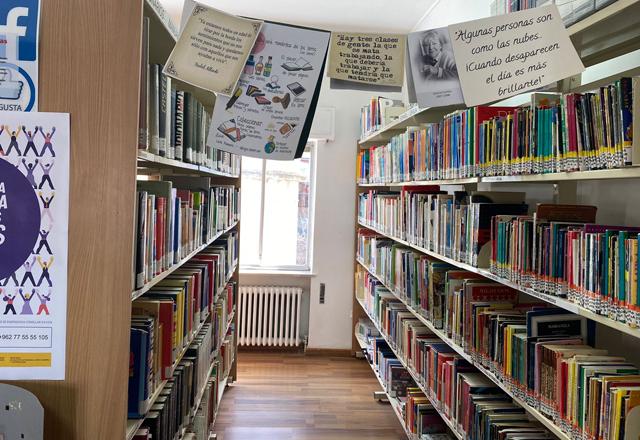You are here
Jordan is ‘key reliable partner’— Spanish ambassador
By JT - Oct 13,2019 - Last updated at Oct 13,2019

Aránzazu Bañón Dávalos
AMMAN — Jordan and Spain see “eye to eye” not only on bilateral issues but also on issues that pertain to the region, said Spain’s Ambassador to the Kingdom Aránzazu Bañón Dávalos.
During an interview with The Jordan Times on the occasion of the National Day of Spain, the ambassador said that Spain and Jordan have always been very close.
“Historically, King Abdullah the First paid a state visit to Spain in 1951 that already then sealed a very close political relationship based on a convergence of interests and views, including a common defence of the Palestinian cause,” she said.
“This close relation based on mutual confidence and understanding has been strengthened over the years, certainly due to the close friendship ties that exist between our Royal Families, but also as part of Spain´s foreign policy in a region of paramount strategic importance for us, namely the Mediterranean and the Middle East,” the ambassador added.
“In this context, Jordan emerges as a key reliable partner with whom we see eye to eye and work together, not only on bilateral issues but also on important regional issues such the Union for the Mediterranean, where we try to promote cooperation between all countries — north and south — to overcome challenges such as unemployment, climate change, energy and security,” Dávalos said.
Spain and Jordan are close partners in the fight against terrorism and extremism, she said, adding: “We very much value the leading role Jordan has taken to tackle this global challenge from a multidimensional approach and we regularly participate in the Aqaba process.”
Touching on support of her nation to the Kingdom, the ambassador highlighted the role of the Spanish Agency for International Cooperation and Development in focusing on women’s empowerment, including financial support to the Jordanian National Plan for the implementation of the Women, Peace and Security Agenda, a political participation of civil society with a special focus on women and children.
“We also work in programmes aimed at strengthening the resilience of communities that host a large number of refugees in the Mafraq Governorate and we are looking forward to starting soon a new project financed by the European Madad Trust Fund in the area of primary health care,” she said.
In relation to the resettlement of Syrian refugees in Spain that started in early 2019, she said that nearly 500 Syrian refugees have moved from Jordan to Spain, and plans include resettling “up to 1,000 more” throughout the next year.
“Our contribution to the current Jordan Response Plan has not been determined yet,” Dávalos stated. “We will have to wait for the formation of a new government in Spain after the general election scheduled for November 10 and for the approval of a new budget.”
“Nevertheless,” she continued, “Spain committed 84.7 million euros to tackle the impact of Syrian refugees in neighbouring countries during the Brussels Conference last April.”
Regarding business ties, the ambassador said that Jordan and Spain have witnessed a “significant growth” in trade exchange in the last five years.
Spain, she highlighted, is the fourth largest European exporter to Jordan at a yearly amount of approximately $450 million, whereas it is the fifth largest destination of Jordan´s exports to the EU with exports that amount to around $40 million.
As for Spain’s tourism industry, Dávalos said that Spain is the second most visited country in the world. The number of visitors in 2018 was slightly over 80 million, she added.
As for Spanish tourists visiting Jordan, the numbers are “visibly increasing”, according to Dávalos.
“Two years ago, 2017, around 13,000 Spaniards visited Jordan. Expectations for this year are around 28,000, so the number has almost doubled,” she said.
“In general, the degree of satisfaction of Spanish visitors is very high and social networks are full of positive comments on the beauty of the landscapes and archeological sites in Jordan as well as the warm hospitality of their people and the quality of the food. Jordan is also portrayed as a safe tourist destination.”
“With Jordan, we have cooperated in the field of technical assistance and done feasibility studies, for instance in the field of rural and adventure tourism, a sector that has great potential. However, I believe we have to do more, especially to attract investors from the private sector,” she said.
Within the field of cultural cooperation in the Kingdom, the ambassador said that the Spanish embassy and Instituto Cervantes work closely together in the promotion of the Spanish language and culture.
“At present, nearly 700 students learn Spanish at Instituto Cervantes.There is also a Spanish Department at the University of Jordan where we provide a native Spanish teacher and many Jordanian universities offer Spanish in their language departments,” she added.
Related Articles
AMMAN — Ties between Jordan and Spain are “deep and strategic”, yet, there is room for more improvement and cooperation, Spain’s Ambassador
AMMAN — Spain’s Ambassador to Jordan Aránzazu Bañón Dávalos on Monday bestowed the Order of Civil Merit on Salah Jarrar, a former minister o
AMMAN — With over half a billion speakers worldwide, the Spanish language is becoming more popular in Jordan according to director of the In


















